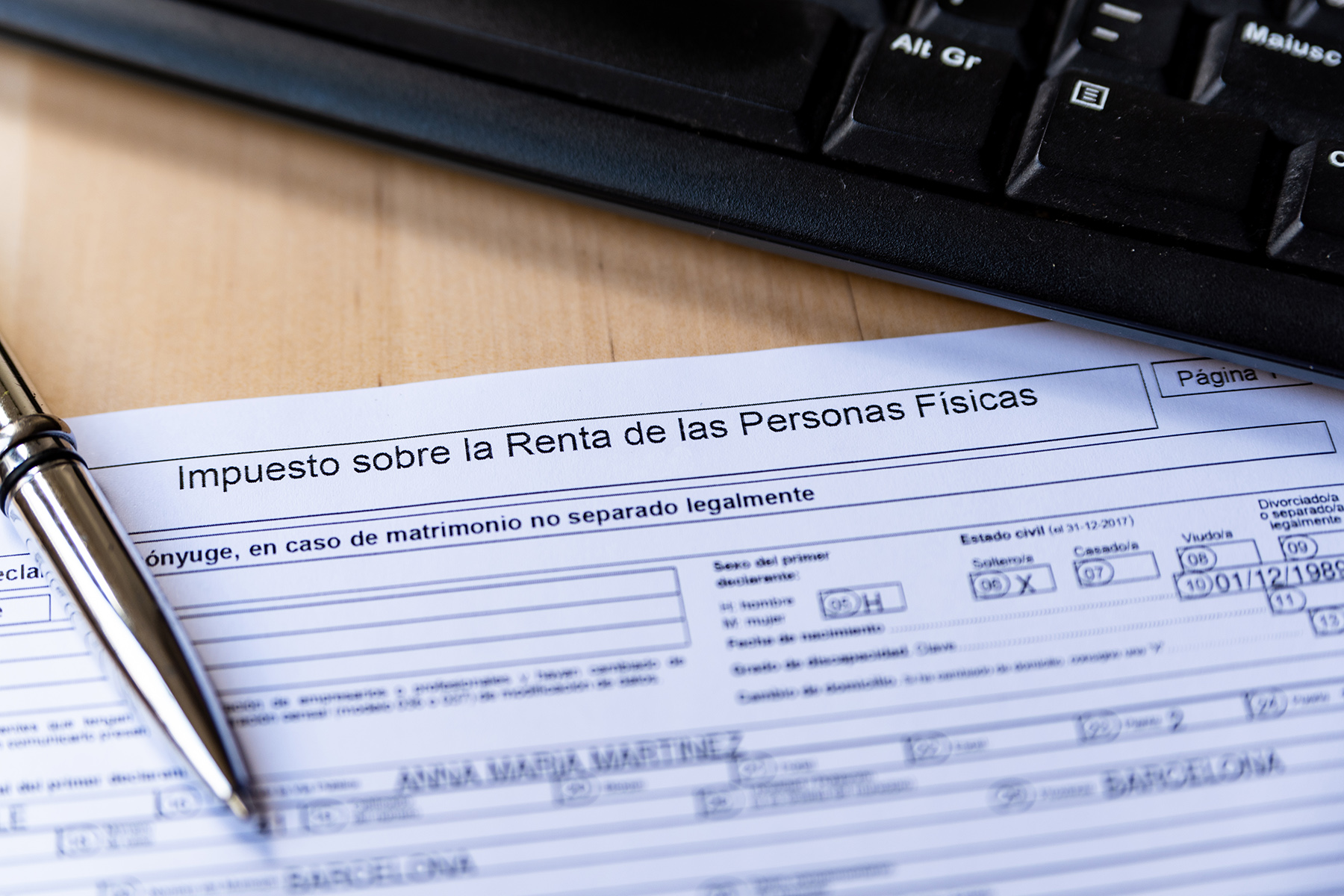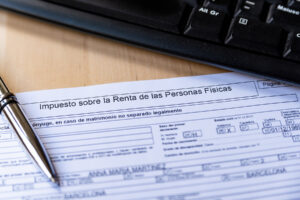If you’re living or working in Spain, it’s important to be aware of your tax liability, which includes which taxes apply to you and how much you should pay. This will generally depend on your residency status, whether you own property, and any other investments you have. Spanish taxes are split between state and regional governments, so rates can vary across the country.
For more information on taxes in Spain, check out the following sections:
Balcells Group
Balcells Group provides legal advice to individuals, companies, investors, immigration agencies and other intermediary agents. They have over 40 years of professional experience, and have built their firm based on the integration of several generations of lawyers that offer a balanced vision based on experience and modernity.
The Spanish tax system
Spain’s tax agency, the Agencia Tributaria, regulates taxation. The Spanish tax year runs from 1 January to 31 December.
If you earn money from employment in Spain or run a company, you must pay tax on your income or profits. Income tax in Spain is unique, as the rate you’ll pay is a combination of the rate set by the national government and the rate set by your regional government. For most employees, tax is withheld automatically as part of their pay.

National taxes in Spain include capital gains tax, corporate tax, and VAT. Regional and local taxes include property taxes and wealth taxes. Inheritance tax rates and obligations vary from region to region.
What is new about taxes in 2025?
A handful of tax changes came into force in 2025. When it comes to income tax, the tax rate on savings income over €300,000 has risen from 28% to 30%. Other income tax rates have remained unchanged.
Reforms have also been made to corporate tax for smaller companies in Spain, with the government planning to gradually reduce tax rates for companies with turnovers below €1 million, and those with turnovers between €1 million and €10 million. You can find out about corporate tax in Spain in our dedicated article.
Finally, the VAT rate on essential food items has returned to 4%, having temporarily been at 0% (January to September 2024), and 2% (October to December 2024).
Who pays tax in Spain?
Your tax liability in Spain is based on your residency status. Tax residents pay Spanish income tax on their worldwide income. You’re considered a tax resident if any of the following apply:
- You lived in Spain for more than 183 days in the last calendar year. This does not need to have been a consecutive period.
- Your family or business interests are located in Spain.

CPO and co-founder, Entre Trámites
Maria Durán
Insider Tip: Handling scary tax
Spain’s tax system isn’t scary with the right help.
I was overwhelmed when filing taxes in Spain for the first time. The deadlines, forms, and rules were completely new to me. What saved me was finding an advisor who specializes in expats – they explained everything simply and helped me avoid costly mistakes. It’s worth the investment.
Spanish tax residents must pay tax on income earned from employment, self-employment, rental properties, capital gains, and savings. Your taxable income is after deductions for social security and pension contributions, personal allowances, and professional costs.
How does tax work for expats?
If you live in Spain for less than 183 days in a calendar year, you will be considered a non-resident and will only pay income taxes on your Spanish income. Rather than the standard progressive rates residents pay, income tax for non-residents applies at a flat rate with no allowances or deductions.
Tytle
Tytle is your one-stop-tax-shop for advice, filings, bookkeeping, visa, and more in 30+ countries. Manage all your tax needs from a single dashboard, whether for one country or multiple, all at affordable rates. Tytle has a team of trusted advisors in Spain, helping you stay compliant and stress-free.
Spain has signed numerous tax treaties with other countries to prevent double taxation. These agreements ensure that individuals or businesses are not taxed twice on the same income in both Spain and their home country. The Spanish tax agency keeps an updated list of these treaties.
Do I need a Spanish tax ID number?
Residents and non-residents must register to pay taxes in Spain. First, you’ll need a tax ID number (NIE number). You can get this via your local Foreigner’s Office (Oficina de Extranjeros) or police station within 30 days of arrival in Spain.
You can fill out form 30 (Modelo 30) to register your obligation to pay Spanish tax as a resident or non-resident for the first time or to change your details.
Types of tax in Spain
Spanish income taxes
Personal income tax in Spain is called Impuesto de Renta sobre las Personas Fisicas or IRPF. Spain operates a pay-as-you-earn (PAYE) system, where employers withhold tax from your salary and pay it directly to the tax agency.
Income tax for residents
Income tax rates for residents generally range from 19% to 47%, with the rate payable broken down into six brackets depending on income. Your overall tax rate is a combination of the rate set by the government and your region. As some areas have different tax rates, your total bill will vary depending on where you live in Spain.

Residents can benefit from a series of deductions when filing their returns (e.g., having children, making pension contributions, or renovating properties). The basic tax-free personal allowance for Spanish residents under 65 is €5,550, €6,700 starting at 65, and €8,100 from 75.
Income tax for non-residents
The general income tax rate for non-residents is 24%, or 19% if you are a citizen of an EU or EEA country. Non-residents cannot benefit from allowances or deductions against their tax bill.
Filing your tax return
In 2025, you must complete your income tax return in Spain between 2 April and 30 June. Everyone has to file a Spanish tax return in their first year of tax residency.
After the first year, you don’t have to file a Spanish tax return if your income from all sources is less than €8,000 and you have less than €1,600 of bank interest or investment income.
The same applies if your rental income is less than €1,000 or you earn less than €22,000 as an employee, as your employer will have deducted your Spanish income tax.
Beckham’s Law
Beckham’s Law was introduced in 2004 to attract more foreign workers and international companies to Spain.
The rule means that employees on assignment in Spain can pay a flat tax rate of 24% on income up to €600,000. Those who earn more than this amount pay 47% on additional earnings. A 3% tax rate is also payable on income from dividends, interest, or capital gains over €200,000. This preferential rate lasts for six years.
Income tax for self-employed workers
Tax residents who are freelancers or self-employed professionals (autónomos) pay income tax in Spain at the same rates as everyone else. Unlike employed workers, most self-employed people must file every quarter and make advance payments to the tax office. Freelancers may claim tax deductions on several grounds, provided they have proper invoices and receipts.
Allowable deductions include social security contributions, accounting and tax service costs, professional subscriptions, office expenses, phone, internet, and any vehicles used for work.
Property taxes in Spain
If you own a property in Spain and live in it on 1 January in any given year, you must pay a local property tax or Impuesto sobre Bienes Inmuebles (IBI). The amount due is the property’s rental value multiplied by a tax rate set by the local authorities. This applies to both non-residents and residents.

There are also tasas de basuras, a rubbish collection tax. Non-resident property owners may also need to pay income tax flat rates on potential rental income on Spanish property.
If you sell a property in Spain, you must pay a property transfer tax, Impuesto Transmisiones Patrimoniales (ITP). When a property is sold, the local authority charges a tax on the increase in the value of the land, the plus valia.
Capital gains tax and tax on investment income
Spain’s capital gains tax (the tax on profits from selling property or other investments) is as follows:
- First €6,000: 19%
- €6,000–50,000: 21%
- €50,000–200,000: 23%
- €200,000–300,000 27%
- €300,000 or more: 30%
If you bought a property before 1994, you may be liable to pay more tax than before, as the taper tax on capital gains tax has been abolished. You might be eligible for an exemption if you are over 65 and selling your main home or if you are under 65 and selling your main home to buy another main home in Spain. The above tax rates also apply to savings income.
Wealth tax
Wealth tax in Spain is payable on the value of your assets on 31 December each year. Assets valued at more than €10 million can be taxed up to 3.5%. Rates vary depending on your region, and some areas don’t charge the tax at all.
Everyone has a standard €700,000 tax-free allowance. Homeowners benefit from a further €300,000 against the value of their primary residence.
Corporate tax
The general rate of corporate tax in Spain is 25%. Newly formed companies can pay a rate of 15% for the first two years.
New rules came into force in 2025 offering reduced rates for smaller companies.
- Small companies with less than €1 million turnover pay a rate of 21% on the first €50,000 of profit and 22% on the remainder. These figures will gradually reduce to 19% and 21% (2026) and 17% and 20% (2027).
- Small companies with turnover between €1 million and €10 million pay a corporate tax rate of 24% on their profits. This will reduce by 1% each year, before settling at 20% in 2029.
Companies must file tax returns within 6 months and 25 days after the end of their accounting period. Corporate tax is paid in installments in April, October, and December.
A new ‘Complementary Tax’ was also introduced in 2025 to ensure large companies with revenues above €750 million pay a global effective tax rate of at least 15% wherever they operate.
The information provided here provides a general overview only; you should always seek professional advice from a Spanish financial professional regarding your company’s specific circumstances.
VAT in Spain
Spain has three levels of value-added tax (VAT) or Impuesto sobre el Valor Añadido (IVA):
- General: 21% on goods and services
- Reducido: 10% on passenger transport, toll roads, amateur sporting events, exhibitions, health products, non-basic foods, trash collection, pest control, and wastewater treatment
- Superreducido: 4% on essential foods, medicine, books, and newspapers

VAT for businesses
All IVA payers must submit all invoice data online within four days of the date of issuance and no later than the 16th day of the following month. Companies usually make their VAT payments quarterly or monthly if the business has a turnover of more than €6 million.
Inheritance tax and gift tax
Inheritance tax in Spain applies to both residents and non-residents. The Spanish government groups inheritance tax and gift tax liability together. Tax rates vary considerably depending on the sum inherited and the relationship with the deceased.
Since 2015, non-residents from within the EU/EEA have been treated the same as residents in terms of inheritance and gift tax. Before the change, non-residents paid around 80% more than residents. The Spanish Supreme Court ruled that non-residents who paid the higher rate in the past are entitled to a refund.
Inheritance tax rules and rates vary from region to region. In 2017, some regions, such as Andalucía, updated their inheritance and gift tax policies, which resulted in many families not having to pay the tax. Check your specific region’s laws for more information.
Road tax
Drivers in Spain must pay an annual road tax (Impuesto Sobre Vehículos de Tracción Mecánica – IVTM). This is based on your vehicle fuel type and your region. See your regional government’s website for details about tax in your area.
Tax avoidance and evasion in Spain
Tax evasion (evasión fiscal) is an ongoing problem in Spain, with billions yearly lost to unpaid taxes. Evasion comes in many forms, from large companies failing to fully declare their taxable bases to workers being paid ‘cash in hand.’
The penalties for tax fraud vary. For sums of up to €3,000, a fine of €1,500 applies. More serious offenses are subject to fines of between 50% and 100% of undeclared tax. If the amount undeclared exceeds €120,000, jail terms of up to five years are possible, alongside significant fines.
The Spanish tax authority is increasing its efforts to clamp down on tax evasion. In 2023, it announced that it would double down on investigating digital nomads and remote workers who claim they don’t reside in Spain in an attempt to pay income tax at non-resident levels.
Tax fines and penalties
If you fail to complete a tax return in Spain, you can expect to pay a fine and interest on any tax owed. If you file late, you may be charged a fee ranging from 5% of the tax due (up to three months late) to 20% (more than a year late).
The Spanish government can charge additional penalties of 50% to 150% of the tax due for late submissions. This might apply if the tax office has demanded the submission.
You’ll usually receive the minimum penalty if you haven’t deliberately tried to avoid tax. The biggest fines are designed for those who’ve made deliberate or repeated violations. This includes underreporting income, inflating deductions, or failing to report offshore accounts.

Penalties for late or incorrect corporate tax returns also apply. These penalties are graded on a sliding scale – e.g, if the return is filed three months late, the fine is 5% of the tax due. The fine is 20% of the tax due if it is over a year late. There is also a 5% interest on payments over a year late.
Tax advice in Spain
Taxes in Spain can be complex. While the information above provides a general overview, you should always get professional advice from a financial expert regarding your individual tax situation. Experts such as those at Balcells Group and Tytle provide English-language advice for internationals living and working in Spain.
In addition, you can consult Expatica’s Spanish directory of accountants and tax preparers to find assistance.
Useful resources
- Agencia Tributaria – the Spanish tax authority provides information on all aspects of tax in Spain for individuals and companies
- Ministry of the Interior of Spain – responsible for the issuing of Spanish tax numbers
- Spanish National Police – processes NIE applications











